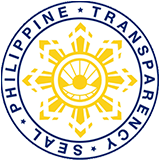The Department of Social Welfare and Development (DSWD) launched recently its Bawal Ang Epal Dito campaign to protect the Pantawid Pamilyang Pilipino Program from partisan politics that may affect the credibility of the program. This campaign runs from January to May 2013.
Bawal Ang Epal Dito campaign deals with the issues of external pressures and misconception of the beneficiaries about the involvement of politicians in the implementation of Pantawid Pamilya. More importantly, it seeks to empower the beneficiaries to know their rights and to be vigilant of individuals and/or groups who plan to use the program to push their political agenda.
This campaign will increase the knowledge of both the beneficiaries and the public about the conditionalities of the program and the selection and removal of households. Likewise, the campaign will protect the households from unverified threats of removal from the program if they will not support certain politicians in the upcoming elections.
DSWD-NCR Regional Director Ma. Alicia S. Bonoan stated that the campaign emphasizes key messages that will inform the public and the beneficiaries that only the DSWD Regional and National Office have the authority to delist a beneficiary of Pantawid Pamilyang Pilipino Program. This action will only be done after thorough validation of compliance to conditionalities of the program.
“DSWD lang ang may karapatang tanggalin ang benepisyaryo sa Pantawid Pamilya kung hindi siya susunod sa mga itinakdang kondisyon ng programa,” Bonoan continued.
With the upcoming 2013 elections, the Department continuously receives reports through its Grievance Redress System that there are politicians who claim to have authority to enlist and delist beneficiaries from the program.
The Pantawid Pamilya is a human development program of the national government and social protection strategy that invests in the health and education of poor children 0-14 years old. As of January 9, 2013, the program has 3,843,502 household beneficiaries nationwide. Of this number, 203,341 households are from the National Capital Region. (DSWD Field Office-NCR Communications Office/30 January 2013) ###



